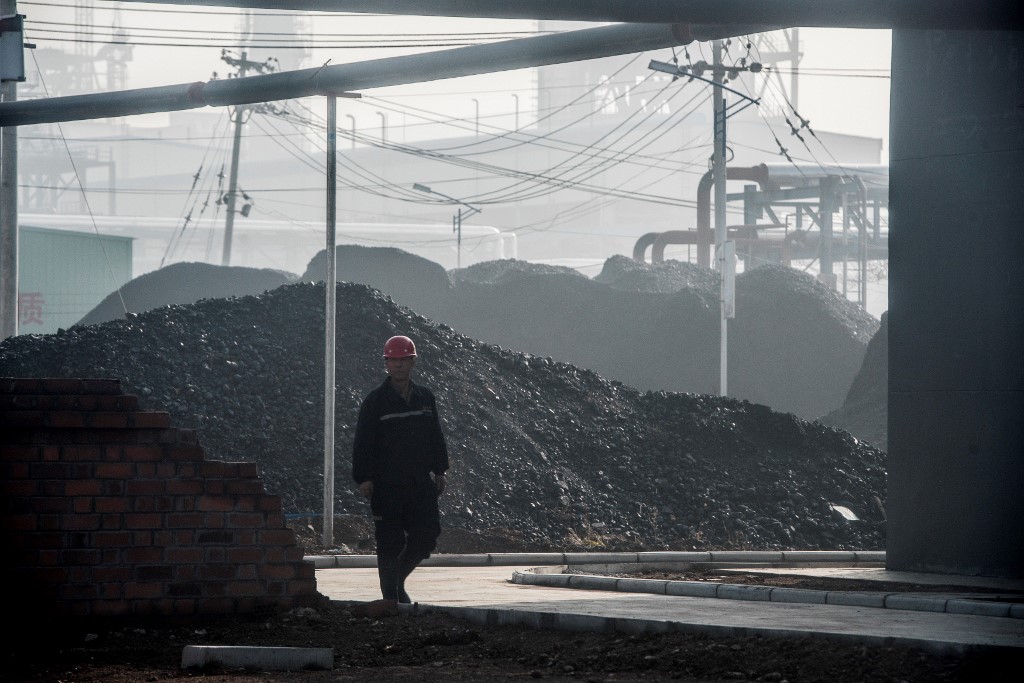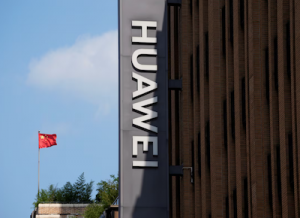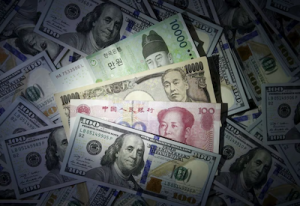(ATF) Yongcheng Coal & Electricity Holdings Group has been banned from debt sales for one year, while its parent firm got a seven-month ban, after a surprise default by the state-owned coal miner late last year that rattled the country’s $4 trillion corporate debt market.
And nine other organisations linked to the default – from underwriters, to a fund management firm, an accounting firm, and a credit rating agency – were all penalised.
The National Association of Financial Market Institutional Investors said a probe into Yongcheng Coal found a number of violations. NAFMII is a self-regulatory body under the central bank. It posted a statement about the default on its website last Thursday.
Yongcheng Coal failed to accurately disclose assets used by the company’s controlling shareholder and the fact that it has been submitting funds to the controlling shareholder’s fund management centre. It did not accurately disclose information on pledged assets and records of previous defaults. It also transferred some assets and changed the purpose of raised funds during the term of the bond but failed to disclose such matters.
Just a few days before its default on a 1 billion yuan (US$154 million) bond in November, Yongcheng Coal announced that it had transferred 1.15 billion shares in Zhongyuan Bank to two other enterprises owned by Henan provincial government at no cost. The dubious asset transfer, whose intention was unclear initially, but later seen by investors as a move by Yongcheng Coal and the local government to protect high-quality assets from being liquidated to repay debt.
NAFMII has banned Yongcheng Coal’s current and former chairmen from engaging in bond issuance for a year, and its current and former accounting heads from such activity for six months.
Probes into Yongcheng Coal’s parent company, Henan Energy and Chemical Group, found that the group “disrupted market orders” by purchasing bonds issued by itself and Yongcheng Coal, NAFMII said. It also failed to accurately disclose pledged assets, and did not disclose asset transfers or change of purpose of funds during the term of its bonds.
In a separate statement on Friday, NAFMII said it gave warnings to the bonds’ credit rating agency China Chengxin International Credit Rating (CCXI), accounting firm Xigema, the lead underwriter and adviser Haitong Securities, as well as fund management firm Donghai Funds.
Rating agency suspended
CCXI, which is 30%-owned by Moody’s and has a 42% market share in China, was suspended from business for three months.
Three other lead underwriters, namely Industrial Bank, Everbright Bank, and Zhongyuan Bank, were criticized and their violations made known to the public.
In a public letter of apology requested by NAFMII, Yongcheng Coal asked for forgiveness from the market players and investors, and said it would work actively to collect funds to repay bonds that are overdue. It promises to gradually resolve the issue of assets being used by its controlling shareholder and said it would immediately stop submitting funds to the controlling shareholder’s fund management centre.
Yongcheng Coal was among several other top-rated state-owned enterprises (SOEs), including Huachen Automotive Group (the Chinese partner of BMW, also know as Brilliance Group) and chip designer Tsinghua Unigroup, whose defaults two months ago sent shockwaves across China’s corporate bond market.
Like Yongcheng Coal, Brilliance Group also moved a valuable asset before its bond default. It quietly registered a wholly-owned subsidiary and transferred its entire 30.4% ownership in Hong Kong-listed Brilliance China Automotive Holdings Ltd to the subsidiary. Brilliance China owns a 50% stake in a joint venture (JV) with BMW, which is a “cash cow” that contributes the majority of Brilliance China’s and the group’s income.
As Brilliance Group undergoes bankruptcy restructuring, Liaoning provincial government’s Commission for Discipline Inspection has launched a probe into Brilliance Group’s former chairman, Qi Yumin, on suspicion of serious offences. Its current chairman Yan Binzhe, who replaced Qi after he retired in 2019, has been openly denounced by Shanghai Stock Exchange for various violations related to the default.
‘A ploy to test boundaries’
The bond defaults by top-rated SOEs dented investor confidence, pushed up funding costs for many corporate borrowers, and triggered a wave of bond cancellations, adding to pressures on China’s nascent economic recovery. They also torpedoed investor assumptions that authorities will always bail out state-owned enterprises.
Several analysts from Nomura China have said the recent SOE defaults were a ploy by local officials to test the boundaries of policymakers in Beijing and market investors, rather than a new top-down deleveraging campaign by Beijing.
“There is no need to overreact to recent bond defaults by Chinese state-owned enterprises (SOEs), but stay cautious,” several Nomura China analysts said in a commentary.
Nomura China does not foresee a systemic credit crisis because China’s economy has been rebounding and the People’s Bank of China has enough space to prevent a systemic credit crisis.
China’s finance guns have acted fast to tidy up after the bond default debacle. China’s Vice Premier Liu He vowed at a meeting of the Financial Stability and Development Committee in November that China would show “zero tolerance” for misconduct.
The central bank, which released excess liquidity to ease the shortage of funds, has pledged to improve supervision of the bond rating sector. Besides CCXI, state-owned Golden Credit Rating was also suspended from issuing new securities ratings for three months. And a court in Hangzhou ruled this month that Dagong Global Credit Rating must help repay creditors of Wuyang Construction Group, which defaulted on 1.4 billion yuan ($216 million) of bonds three years ago.
‘Beware of the north’
Nomura China noted that all 10 SOEs with bond defaults last year, Yongcheng Coal and Brilliance Group included, were based in the north of China.
“This is because SOEs play a much more important role in the economy of North China and because, over the years, economic growth has been higher in South China, especially along the Yangtze River and Pearl River deltas, than North China,” they said.
They advised investors to consider the geographical distribution of SOE bond defaults when making investment decisions.
As Beijing is now allowing even state-owned-enterprises in strategic industries to default, Chinese traders are starting to risk-weight personnel, looking for example at the track record of provincial chiefs to extrapolate their Beijing connections and their attitudes toward bad debt.
























